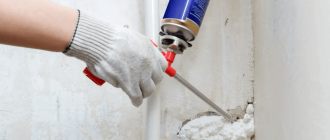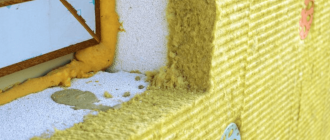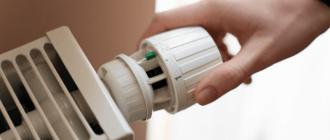Looking for the best insulation options for your metal building?
Look no further!
When it comes to insulating metal buildings, making the right choice is crucial. Metal buildings can be prone to extreme temperature fluctuations, which can impact comfort and energy efficiency. That’s why it’s important to choose insulation options that are tailored to the unique needs of metal constructions.
At our company, we offer a wide range of insulation options specifically designed for metal buildings. Whether you’re looking for thermal insulation to keep your building cool in the summer and warm in the winter, or you need acoustic insulation to reduce noise transmission, we’ve got you covered.
Our insulation products are specially engineered to withstand the rigors of metal structures. They are durable, long-lasting, and highly effective at providing optimal insulation performance. With our insulation solutions, you can create a comfortable and energy-efficient environment in your metal building.
Don’t settle for subpar insulation options that won’t meet your needs. Choose the best insulation options for metal buildings – choose our company. Contact us today to learn more about our products and how we can help you achieve the perfect insulation for your metal building.
Understanding the Importance of Insulation
When it comes to metal buildings, insulation plays a crucial role in maintaining a comfortable and energy-efficient environment. Without proper insulation, these buildings can become extremely hot in the summer and cold in the winter, making them uncomfortable for occupants and potentially damaging to the structure itself.
Energy Efficiency
Insulation is key to achieving energy efficiency in metal buildings. By reducing heat transfer, insulation helps to keep the interior temperature stable, reducing the reliance on heating and cooling systems. This not only saves money on utility bills but also reduces the carbon footprint.
Condensation Control
Another important benefit of insulation is its ability to control condensation. Metal buildings are prone to condensation due to temperature fluctuations and the metal’s high thermal conductivity. Insulation acts as a barrier, preventing warm, humid air from coming into contact with the cooler metal surfaces and reducing the likelihood of condensation and subsequent damage, such as rust and mold growth.
Improved Comfort
Proper insulation provides a more comfortable interior environment by reducing drafts and temperature extremes. It helps maintain a consistent temperature and minimizes the effects of cold or hot spots within the building. This ensures a more pleasant experience for occupants, whether they are using the metal building as a workspace, storage facility, or recreational area.
Increased Durability
Insulation not only benefits the comfort of the occupants but also the longevity of the building itself. By reducing temperature fluctuations, insulation helps to minimize thermal expansion and contraction of the metal panels, which can lead to structural issues over time. Additionally, insulation can provide soundproofing benefits, reducing noise transmission within the building.
In conclusion, understanding the importance of insulation in metal buildings is essential for creating a comfortable, energy-efficient, and durable environment. Investing in high-quality insulation options not only improves the performance of the building but also saves money in the long run and reduces environmental impact.
Benefits of Proper Insulation for Metal Buildings
Proper insulation options for metal buildings offer numerous benefits to both the structure and its occupants. Investing in quality insulation helps create a more comfortable and energy-efficient environment, while also safeguarding the integrity of the building.
Enhanced Energy Efficiency
One of the key benefits of proper insulation is improved energy efficiency. Insulating metal buildings helps regulate temperature by reducing heat transfer through the walls and roof. This means that during hot summers, the interior remains cooler, while in colder months, the insulation keeps the warmth inside.
Reducing the transfer of heat through insulation helps prevent energy loss, resulting in lower energy bills and reduced environmental impact. With proper insulation in place, metal buildings can achieve higher energy efficiency ratings, making them more sustainable and cost-effective in the long term.
Improved Comfort
Proper insulation also contributes to increased comfort within metal buildings. Insulation materials with proper R-values help maintain a consistent temperature, reducing drafts, and eliminating cold spots. This creates a comfortable and cozy indoor environment for occupants throughout the year.
In addition to temperature control, insulation also helps with soundproofing. Insulating metal buildings can significantly reduce external noise, making them more peaceful and conducive to work or relaxation.
Preservation of Structural Integrity
Another crucial benefit of insulation for metal buildings is the preservation of their structural integrity. Metal structures are susceptible to condensation and moisture buildup, which can lead to corrosion and damage over time.
However, quality insulation options provide a moisture barrier, preventing condensation from forming. By minimizing moisture intrusion, insulation helps protect the metal structure, extending its lifespan and reducing the need for costly repairs.
In conclusion, investing in proper insulation options for metal buildings offers a range of benefits, including enhanced energy efficiency, improved comfort, and the preservation of structural integrity. With the right insulation, metal buildings can provide a comfortable, cost-effective, and durable solution for various applications.
Factors to Consider when Choosing Insulation
When it comes to metal buildings, choosing the right insulation is crucial for maintaining a comfortable and efficient interior environment. There are several factors that need to be considered before making a decision:
1. Thermal Performance:
The thermal performance of insulation is one of the most important factors to consider. Metal buildings are prone to fluctuating temperatures, so it’s essential to choose insulation materials with high R-values, which indicate their thermal resistance. The higher the R-value, the better the insulation will be at keeping the interior temperature stable.
2. Moisture Resistance:
Moisture can be a challenge in metal buildings due to condensation and potential leaks. Insulation that has good moisture resistance properties will help prevent issues such as mold growth, rust, and deterioration. Consider insulation materials that have vapor barriers or that are designed to be resistant to moisture.
It’s also important to ensure that the insulation materials can effectively prevent air leaks, as this can impact the overall energy efficiency of the building.
3. Fire Safety:
Fire safety is a critical consideration, especially in metal buildings that may house flammable materials or equipment. Choose insulation materials that have a good fire rating and meet the necessary building and safety codes. Fire-resistant insulation can provide an added layer of protection and help contain the spread of fire in case of an emergency.
4. Durability:
The durability of insulation is crucial, especially in metal buildings that may be subjected to harsh weather conditions and potential impacts. Look for insulation materials that are robust and can withstand the test of time. Insulation that is resistant to corrosion, pests, and physical damage will ensure long-term performance and reduce maintenance costs.
5. Installation and Cost:
Consider the ease of installation and the overall cost of the insulation materials. Some insulation options may require professional installation, while others can be easily installed by the building owner. Additionally, factor in the long-term cost savings that energy-efficient insulation can provide in terms of reduced heating and cooling expenses.
By considering these factors, you can make an informed decision when choosing insulation for your metal building. The right insulation will not only provide you with a comfortable and energy-efficient space but also contribute to the longevity and safety of your building.
Fiberglass Insulation: A Cost-Effective Option
When it comes to insulating metal buildings, fiberglass insulation emerges as a highly cost-effective option that provides excellent thermal performance.
Fiberglass insulation consists of tiny glass fibers that are spun into a soft, flexible material. These fibers create thousands of tiny air pockets that effectively trap heat and provide an exceptional level of thermal resistance. This makes fiberglass insulation an ideal choice for metal buildings, which are prone to conductive heat transfer due to the high thermal conductivity of metal.
One of the main advantages of fiberglass insulation is its affordability. Compared to other insulation options, such as spray foam or rigid foam insulation, fiberglass insulation is relatively inexpensive, making it a popular choice for those on a budget. This cost-effectiveness, however, does not compromise its performance.
Another benefit of fiberglass insulation is its ease of installation. It can be installed quickly and easily, whether you choose to do it yourself or hire a professional. The flexible nature of fiberglass insulation allows it to be easily manipulated and fitted into various sizes and shapes of metal building cavities. This ensures a tight seal and maximum effectiveness in reducing heat transfer.
Fiberglass insulation also offers excellent soundproofing properties. Metal buildings can be noisy due to reverberation of sounds off the metal surface, but fiberglass insulation helps to absorb and dampen sound vibrations, creating a quieter and more comfortable environment.
In addition to its thermal and soundproofing capabilities, fiberglass insulation is also resistant to moisture and mold growth, which is essential for maintaining a healthy indoor environment. It does not absorb water, preventing the growth of mold and mildew that can compromise indoor air quality.
In conclusion, fiberglass insulation is a cost-effective option for insulating metal buildings. Its affordability, ease of installation, thermal performance, soundproofing properties, and moisture resistance make it an excellent choice for those looking to optimize energy efficiency, comfort, and affordability in their metal building projects.
Spray Foam Insulation: Superior Performance and Energy Efficiency
Metal buildings are known for their durability and versatility. However, when it comes to temperature control and energy efficiency, they can pose some challenges. That’s where spray foam insulation comes in.
Spray foam insulation is a popular choice for metal buildings due to its superior performance and energy efficiency. It is a type of insulation that is applied as a liquid and expands into a foam, creating a continuous barrier that seals any gaps and cracks.
One of the key benefits of spray foam insulation is its ability to provide a tight seal, which helps to prevent air leakage and energy loss. This means that the interior of the metal building stays cooler in the summer and warmer in the winter, resulting in reduced heating and cooling costs.
Additionally, spray foam insulation has excellent thermal resistance properties, which means it can effectively slow down the transfer of heat. This not only improves the comfort level inside the metal building but also helps to prolong the lifespan of the HVAC system.
Another advantage of spray foam insulation is its ability to provide sound insulation. It can help to reduce noise transmission from outside, creating a quieter and more peaceful environment inside the metal building.
In conclusion, spray foam insulation is the best choice for metal buildings when it comes to performance and energy efficiency. It provides a tight seal, excellent thermal resistance, and sound insulation, making it the perfect solution for temperature control and comfort in metal buildings.
Reflective Insulation: Blocking Radiant Heat
When it comes to insulating metal buildings, one of the most effective options available is reflective insulation. This type of insulation works by reflecting radiant heat away from the building, preventing it from entering and keeping the interior temperature comfortable and consistent.
How Does Reflective Insulation Work?
Reflective insulation is made up of multiple layers of material, including a reflective film sandwiched between outer layers of foil or other materials. This reflective film is designed to reflect radiant heat away from the building, rather than absorbing it like traditional insulation materials do.
When sunlight or other sources of radiant heat hit the reflective surface of the insulation, the rays are reflected back, preventing them from penetrating into the building. This helps to keep the interior cool in the hot summer months and warm during the cold winter months, making it ideal for metal buildings that are sensitive to external temperature changes.
Benefits of Reflective Insulation for Metal Buildings
- Improved Energy Efficiency: Reflective insulation helps to reduce heat transfer, lowering the demand on heating and cooling systems and ultimately saving energy and money.
- Enhanced Comfort: By reflecting radiant heat away from the building, reflective insulation helps to maintain a consistent and comfortable interior temperature.
- Condensation Control: Reflective insulation also acts as a vapor barrier, preventing condensation from forming on the interior walls and roof of the metal building.
- Easy Installation: Reflective insulation is easy to install and can be used in both new construction and retrofit projects.
- Durable and Long-lasting: The materials used in reflective insulation are designed to be durable and long-lasting, providing effective insulation for years to come.
When it comes to insulating metal buildings, reflective insulation is an excellent choice to block radiant heat and improve energy efficiency. With its many benefits and easy installation, it’s no wonder that more and more metal building owners are turning to reflective insulation for their insulation needs.
Rigid Board Insulation: High R-Value and Durable
When it comes to insulating metal buildings, there are several options to choose from. One popular choice is rigid board insulation. Rigid board insulation provides high R-value, making it a great choice for energy efficiency. It is also highly durable, ensuring long-lasting protection for your metal building.
Rigid board insulation is made from materials such as polystyrene, polyisocyanurate, or phenolic foam. These materials are known for their excellent thermal performance and resistance to moisture. They are easy to install and can be cut to fit any metal building application.
One of the key advantages of rigid board insulation is its high R-value. R-value measures the thermal resistance of a material and indicates how well it insulates against heat transfer. The higher the R-value, the better the insulation. Rigid board insulation typically has a high R-value, providing superior insulation properties compared to other options.
In addition to its high R-value, rigid board insulation is highly durable. It can withstand harsh weather conditions, including extreme temperatures, moisture, and UV exposure. This makes it a great choice for metal buildings, which are often exposed to challenging environmental factors.
Furthermore, rigid board insulation is resistant to mold, mildew, and pests. It does not promote the growth of mold or mildew, ensuring a healthy indoor environment. The solid construction of the boards also makes it difficult for pests to penetrate and cause damage.
Overall, rigid board insulation is an excellent choice for insulating metal buildings. Its high R-value and durability make it a top option for energy-efficient and long-lasting insulation.
Key Benefits of Rigid Board Insulation:
- High R-value for superior insulation
- Durable construction to withstand harsh weather conditions
- Resistance to moisture, mold, mildew, and pests
- Easy installation and customization
- Energy-efficient solution for metal buildings
When considering insulation options for your metal building, don’t overlook the benefits of rigid board insulation. Its high R-value, durability, and other advantages make it a top choice for energy efficiency and long-term performance.
Cellulose Insulation: Eco-Friendly and Effective
When it comes to insulating metal buildings, finding the right solution can make a significant difference in terms of energy efficiency, comfort, and cost savings. While there are various options available, cellulose insulation stands out as an eco-friendly and effective choice.
Why Choose Cellulose Insulation?
Cellulose insulation is made from recycled paper, usually consisting of up to 85% recycled content. This makes it an excellent option for those looking to reduce their carbon footprint and contribute to a more sustainable future. By choosing cellulose insulation for your metal building, you are actively participating in the recycling process and diverting waste from landfills.
Moreover, cellulose insulation offers exceptional thermal performance, effectively reducing heat transfer and maintaining a comfortable interior temperature. Whether it’s the scorching heat of summer or freezing winter temperatures, cellulose insulation helps create a more energy-efficient space, reducing the need for excessive heating or cooling.
Application and Benefits
Cellulose insulation can be applied to the walls, roof, and floor of your metal building. It can be blown in, sprayed, or installed as loose-fill insulation, providing comprehensive coverage and filling gaps and voids that may exist. This ensures maximum effectiveness and energy savings.
In addition to its eco-friendly nature and superior thermal performance, cellulose insulation also offers excellent soundproofing capabilities. This can be particularly beneficial for metal buildings, which are known for their tendency to amplify noise.
| Benefits of Cellulose Insulation for Metal Buildings |
|---|
| 1. Eco-friendly and sustainable with high recycled content |
| 2. Excellent thermal performance for energy efficiency |
| 3. Effective soundproofing capabilities |
| 4. Comprehensive coverage, filling gaps and voids |
Overall, cellulose insulation offers a compelling solution for insulating metal buildings. Its eco-friendly composition, outstanding thermal performance, and soundproofing abilities make it a top choice for those looking to create a more energy-efficient and comfortable environment while reducing their environmental impact.
Mineral Wool Insulation: Excellent Fire Resistance
When it comes to insulating metal buildings, it’s essential to prioritize fire safety. That’s why mineral wool insulation is an excellent choice.
Mineral wool insulation is made from natural materials, such as basalt, a type of volcanic rock. This unique composition gives it exceptional fire resistance properties, making it an ideal option for metal buildings.
Benefits of Mineral Wool Insulation:
- Fire Safety: Mineral wool insulation has a high melting point and does not contribute to the spread of fire. In the event of a fire, it can help contain the flames and prevent the structure from extensive damage.
- Thermal Performance: Along with its fire resistance, mineral wool insulation also provides excellent thermal insulation properties. It helps regulate the temperature inside the metal building, keeping it comfortable and energy-efficient.
- Sound Absorption: Metal buildings can be prone to echoing and noise reverberation. Mineral wool insulation acts as a sound barrier, absorbing and reducing noise levels, creating a quieter environment.
- Mold and Moisture Resistance: Mineral wool insulation is not affected by moisture and does not support mold growth. This feature ensures a healthier indoor environment and prolongs the lifespan of the metal building.
Overall, mineral wool insulation offers a comprehensive range of benefits, making it a top choice for insulation in metal buildings. Its exceptional fire resistance, thermal performance, sound absorption, and resistance to mold and moisture make it a reliable and durable option.
Radiant Barrier Insulation: Reflecting Heat Away
Radiant barrier insulation is a specially designed material that consists of a highly reflective surface. This surface is made of a thin sheet of aluminum or other reflective material that is applied to the underside of the roof of a metal building. The reflective surface works by reflecting radiant heat back towards the source, preventing it from entering the building.
The way radiant barrier insulation works is by creating an air space between the reflective surface and the roof. This air space acts as a barrier to prevent heat transfer through conduction or convection. Instead, the reflective surface reflects the radiant heat away, keeping the building cooler.
One of the advantages of radiant barrier insulation is that it can be used in combination with other insulation options to provide maximum energy efficiency. For example, it can be used in conjunction with traditional insulation materials such as fiberglass or foam insulation to provide a comprehensive insulation solution for metal buildings.
Overall, radiant barrier insulation offers an effective and energy-efficient solution for metal buildings. By reflecting the heat away, it helps to keep the building cooler and more comfortable, reducing the need for excessive air conditioning and saving on energy costs.
Consider radiant barrier insulation as one of the top options for insulating your metal building. With its ability to reflect heat away, it offers a valuable addition to any insulation system, ensuring a more comfortable and energy-efficient building.
Vapor Barrier Insulation: Preventing Moisture Damage
Moisture damage can be a serious issue when it comes to metal buildings. Without proper insulation, condensation can form inside the building, leading to mold, mildew, and structural problems. That’s why it’s essential to consider vapor barrier insulation for your metal building.
Vapor barrier insulation is designed to prevent the movement of moisture through walls and ceilings. By creating a barrier between the indoor and outdoor environments, it helps to maintain a controlled humidity level and protect your metal building from moisture-related issues.
There are several options available for vapor barrier insulation in metal buildings. One popular choice is a reflective foil insulation, which combines a layer of insulation material with a reflective surface. This type of insulation helps to reflect radiant heat and prevent moisture from penetrating the building envelope.
Another option is a closed-cell spray foam insulation. This type of insulation creates a seamless, air-tight barrier that prevents moisture from entering the building. It also provides excellent thermal insulation, helping to regulate temperature and reduce energy costs.
When choosing vapor barrier insulation for your metal building, it’s important to consider the specific needs and requirements of your project. Factors such as climate, building use, and budget should all be taken into account. Consulting with a professional insulation contractor can help you determine the best option for your needs.
Don’t let moisture damage compromise the integrity of your metal building. Invest in vapor barrier insulation to prevent moisture-related issues and ensure the longevity of your structure. With the right insulation, you can create a comfortable, energy-efficient space that is protected from the damaging effects of moisture.
Comparing the Cost and Performance of Different Insulation Materials
When it comes to insulating metal buildings, there are various options available. Each insulation material has its own unique set of features, costs, and performance levels. Understanding these differences can help you make an informed decision about the best insulation option for your metal building.
One common insulation material used for metal buildings is fiberglass. Fiberglass insulation is affordable and readily available, making it a popular choice. It consists of fine fibers made from glass and is usually installed in batts or blankets. Fiberglass insulation provides excellent thermal resistance and can help reduce heat transfer, keeping your metal building more comfortable.
Another insulation material to consider is foam board insulation. This type of insulation is made from polystyrene or polyurethane and is available in rigid panels. Foam board insulation offers high thermal resistance and can be easily cut to fit around metal building components. It also provides a good barrier against moisture, preventing condensation issues.
Reflective insulation is another option for metal buildings. It consists of a layer of reflective material, such as aluminum foil, and is often combined with other insulation materials. Reflective insulation works by reflecting radiant heat away from the metal building, helping to reduce cooling costs. However, it may not provide as much thermal resistance as other insulation materials.
Spray foam insulation is a more advanced option for metal buildings. It is applied as a liquid and expands to fill gaps and cracks, providing a complete air seal. Spray foam insulation offers excellent thermal resistance and can help reduce energy costs. However, it is typically more expensive than other insulation materials.
Ultimately, the best insulation option for your metal building will depend on your specific needs, budget, and desired level of performance. Consider factors such as cost, thermal resistance, moisture resistance, and ease of installation when making your decision. Consulting with a professional insulation contractor can also provide valuable insights and help you choose the right insulation material for your metal building.
Choosing the Right Insulation Option for Your Metal Building
When it comes to insulating your metal building, you have several options to choose from that can provide optimal temperature control and energy efficiency. The right insulation choice will not only keep your building comfortable year-round but can also save you money in the long run.
Consider the Type of Metal Building
Before selecting the insulation option, it’s important to consider the type of metal building you have. Whether it’s a commercial warehouse, agricultural building, or residential garage, each type has its unique insulation requirements. Understanding the purpose and function of your building will help you make an informed decision.
Compare Insulation Materials
There are different insulation materials available for metal buildings, including fiberglass, foam, and reflective insulation. Each material has its advantages and disadvantages, so it’s essential to compare them before making a choice.
Fiberglass insulation is a popular choice due to its affordability and versatility. It comes in batts or rolls that can be easily installed between the metal framing of your building. Fiberglass insulation is effective in reducing heat transfer and noise penetration.
Foam insulation, on the other hand, provides superior insulation performance. It creates a seamless barrier that prevents air infiltration and moisture buildup. Foam insulation can be applied as a spray or rigid panels, giving you more flexibility in design and installation.
Reflective insulation is another option worth considering. It consists of a layer of aluminum foil laminated to a layer of foam or bubble wrap. This type of insulation is highly effective in reflecting heat and reducing radiant energy transfer. It works by creating a radiant barrier that ensures temperature stability within your metal building.
Consult with an Expert
Choosing the right insulation option for your metal building can be overwhelming, especially if you’re not familiar with the different materials and their properties. That’s why it’s always a good idea to consult with an expert who specializes in metal building insulation. They can assess your specific needs and recommend the most suitable option for your building.
Remember, investing in high-quality insulation is an investment in the longevity and efficiency of your metal building. So take the time to research and choose the best insulation option that meets your requirements and budget.
Make the right choice for your metal building and enjoy optimal comfort, energy efficiency, and cost savings.
Question and answer:
What are the best insulation options for metal buildings?
The best insulation options for metal buildings include spray foam insulation, fiberglass insulation, and reflective insulation. These options provide good thermal performance and help to reduce energy costs.
Which insulation option is the most cost-effective for metal buildings?
Fiberglass insulation is generally the most cost-effective option for metal buildings. It is affordable, easy to install, and provides good thermal insulation. However, the specific cost-effectiveness may vary depending on the size of the building and the desired level of insulation.
Is spray foam insulation a good choice for metal buildings?
Spray foam insulation is an excellent choice for metal buildings. It provides superior thermal insulation, air sealing, and moisture control. It adheres to the metal surface and fills all the gaps and crevices, offering excellent energy efficiency and comfort.
What are the benefits of using reflective insulation in metal buildings?
Reflective insulation can be a great option for metal buildings because it helps to reflect radiant heat away from the building, keeping it cooler in hot climates. It can also help to reduce condensation and improve energy efficiency. However, it may not provide the same level of insulation as other options.
How do I choose the right insulation option for my metal building?
When choosing the right insulation option for your metal building, you should consider factors such as your climate, budget, and desired level of insulation. Spray foam insulation is often recommended for its superior performance, but fiberglass insulation can be a more cost-effective option. Reflective insulation may be beneficial in hot climates. Consulting with a professional can help you make an informed decision.
What are the best insulation options for metal buildings?
The best insulation options for metal buildings include spray foam insulation, fiberglass insulation, and reflective insulation.







